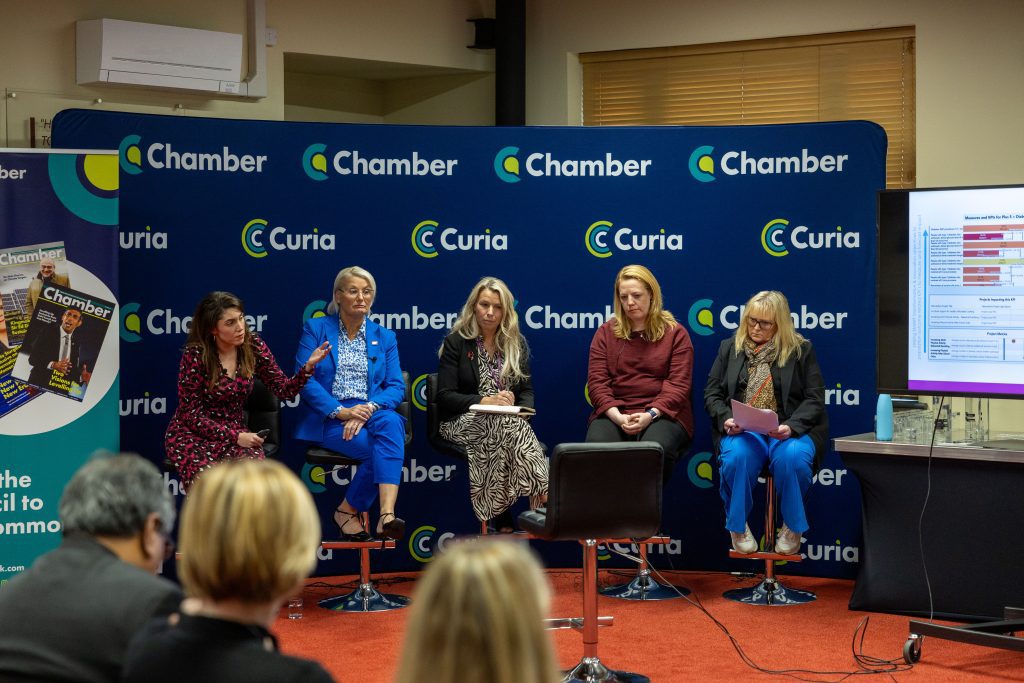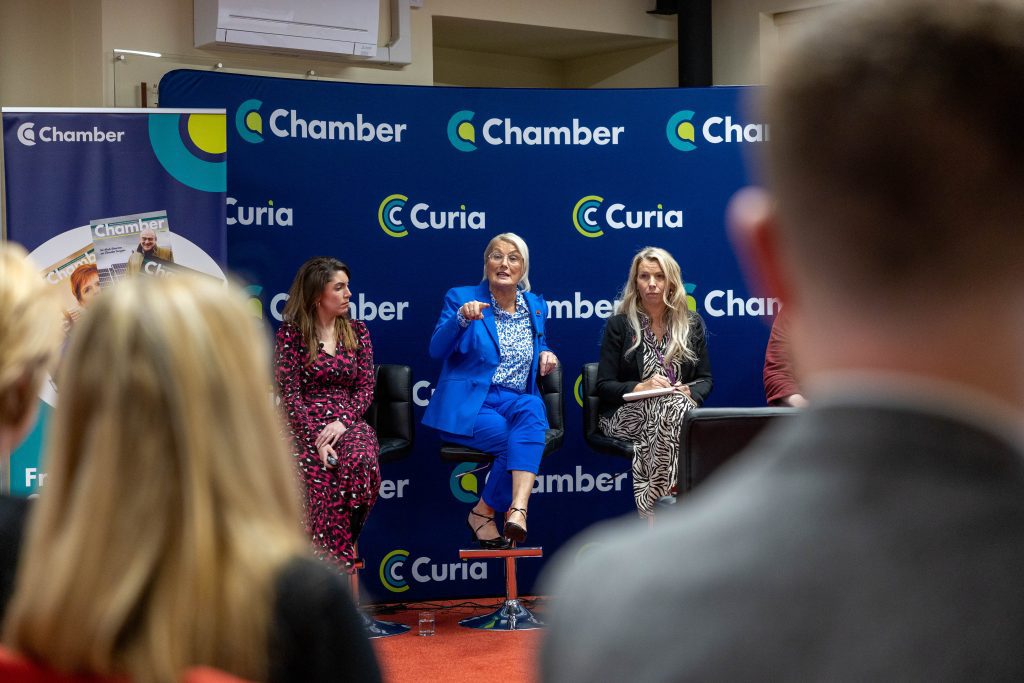In a dynamic panel discussion at Chamber’s Midlands Integrated Healthcare Seminar, those at the forefront of healthcare in the Walsall area explored the importance of collaborative partnerships and their role in improving health outcomes across the Walsall and Black Country area.
Held in partnership with legal experts Mills & Reeve in Birmingham, the panel featured:
- Rhian Vandrill, partner at legal advisors in health and care sector, Mills Reeve – Discussion Chair
- Michelle McManus, Director of Place, Development and Transformation for Walsall Together Partnership
- Kerrie Allward, Executive Director for Adult Social Care, Public Health and Hub, Walsall Council
- Connie Jennings, Director of Stronger Communities for community place based housing association WHG
- Marianne Davy, Head of the Black Country Insights Academy
A tool to Support Change
To begin the discussion, Marianne Davy introduced the Black Country Insights Academy’s role, within the Black Country ICB and ICS. She explained that the Academy conducted an evidence-based review about the key indicators affecting health in the area, which displayed that issues such as not having access to transport, having meaningful connections, meaningful activity, sense of purpose, amongst others, affected the development of poor health.
Through this deep dive into the determining factors, the team established a correlating health outcomes framework. This provided integral data and insight for the place based partners in the Walsall Together partnership. It also sets KPIs relating to the removal of barriers to healthcare and wellbeing.
Davy explained that with these evidence based KPIs, it is easier to consistently measure across the system and compare population outcomes. This awareness, data and understanding also leads health partners to get closer to achieving equity of outcomes. She emphasised however that maintaining partner autonomy and processes through an independent infrastructure is also key.
“We need to use resources efficiently and understanding population outcomes allows us to make tangible links between outcomes and how we can improve them through investment in initiatives and services.”
“Data will only ever tell a part of the story.”
Marianne Davy, Head of the Black Country Insights Academy
Speaking about ensuring cohesion across partnerships and the role of the ICB, Michelle McManus, discussed how it is a “tough task” to find a balance between system and place. The ICB is relatively newly established and, she emphasised, it can be hard to support development in organisational areas that need to be more of a priority. Finding the “art of the possible” was what this was all about.
Data Impacting Outcomes
Following an audience question about the tension between inequity of access and equity of outcomes, Connie Jennings from WHG shared how the data really does positively impact outcomes and affect the ability of individuals to access much-needed services.
By utilising a new platform informed by the new outcomes framework, WHG were able to identify which of the postcodes of their owned homes were in the most deprived areas – known as the Core 20 population. Within this area, the team researched the areas in which children were going into hospitals with avoidable asthma attacks. By locating this unmet need using data, harnessing a connection with customers, and working together with healthcare services to tackle the issue with all partners, children in the area are now experiencing less attacks.
This shows that outcome-based commissioning is making a difference at ground level if organisations across health, housing and community areas work collaboratively.
Walsall Together – Collaborative Working Achieves Better Outcomes
Speaking about the creation of Walsall Together, McManus spoke of the integration journey the team had been on. The members come together with one focus – to improve outcomes for the local population.
Sharing more about Walsall Together, Kerrie Allward said it was born from an “evolution not revolution”, and the desire to work more effectively as a team, whilst ultimately wanting to improve health and wellness for those in the borough. Originally, 11 health services in Walsall were working separately towards similar outcomes. The establishment of this partnership saw the coming together of these 11 service providers under the one umbrella, to forge forwards towards better physical and mental health outcomes, enhanced wellbeing, and reduced inequalities.
Allwardwas happy to share that the achievements of Walsall Together are multiple. By bringing the 11 services together they have been able to halve the budget for the delivery of services. By working as a team and utilising distributive leadership, whereby the issues at hand are passed over to the person best able to deal with them at any given time, the results from a budget perspective have been huge.
Another achievement of the partnership, Allward shared, is a vast reduction in the length of patients staying in hospital beyond the point when they are medically fit to leave. This figure used to be ten days, but now it has been cut to just two. Also, the speed of getting individuals to the correct destination has doubled thanks to this communication across the service providers.

Harness Power of Communities to Improve Awareness
Another key factor of the discussion was the importance of listening to those in the community and using this information to further improve outcomes. Jennings discussed how giving a voice to those in the community and harnessing their knowledge to gain understanding in disadvantaged communities had been a crucial resource in panel discussions.
“Standing in school playgrounds, laundries, and having conversations on their terms in their environment has been integral in our (Walsall Together) panels.”
Celebrate Achievements of Collective Efforts
The panel discussion gave a robust overview of how data is currently being harnessed as a tool to support action and measurable outcomes in healthcare services within the Black Country. Through streamlining services and joining forces across places and partnerships, Walsall Together has improved collective working and is delivering better health outcomes for the populous in the area.
All members agreed however, that data and insight could only take them so far without collaborative efforts. More research is required to keep learning which initiatives and services need further development, and ultimately the panel agreed the team are part way along this journey of change within outcome-based commissioning.
To find out more about the system of place based commissioning in Walsall, the team would be more than happy to offer any further insight. Please email: wht.walsall.together@nhs.net

